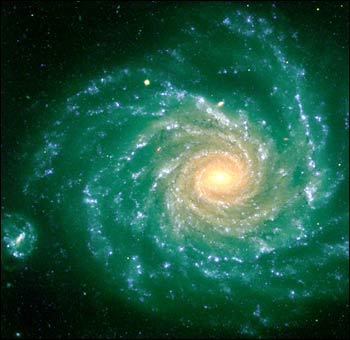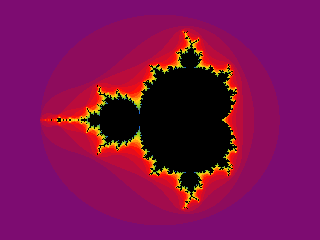


An infinite number of universes?
One hypothesis that is not accepted, but merely an interesting idea, is that of a multiverse. It comes from an interpretation of quantum mechanics. This theory was proposed by David Deustch, states there is a universe for every possibility. So each time an event could have more than one outcome there is a universe created for each outcome. The only real evidence of this theory, is a different interpretation of the electron double slit experiment, in which electrons are fired toward two narrow, closely spaced slits. Behind the slits is a phosphorescent screen which glows when struck by an electron. The result of this experiment is a pattern on the screen, which is typical of an interference pattern. A row of vertical bright and dark stripes appears indicating that the electrons are interfering with each other as they pass through the slits. However, if the electron gun, which fires the electrons at the slits, is slowed to fire only one electron at a time it is found that the electrons will still hit the area where the bright stripes were before. This is in spite of the fact that there can be no interaction between electrons if only one is fired at a time. The most widely accepted interpretation of this is the Copenhagen interpretation, which says that the electron is composed of a wavefunction which spreads itself out over the whole area of the double slit and screen, allowing it to pass through both slits and interfere with itself. The Multiverse interpretation says that the electron only goes through one slit and it interferes with one going through the other slit in another universe.
No physicist accepts Multiverse theory as a fact or even a theory, but many find it fascinating. One of these is British Astronomer Royal Martin Rees. In the last chapter of his book Just Six Numbers, in which he outlines the fine-tuning of the universe. He proposed three explanations- coincidence, providence, and multiverse. He related the coincidence theory by quoting Canadian Philosopher John Leslie: "Suppose you are facing a firing squad. Fifty marksman take aim, but they all miss. If they hadn't missed, you wouldn't have survived to ponder the matter. But you wouldn't just leave it at that - you'd still be baffled, and would seek some further reason for your good fortune." a lot of people dismiss the theory as science fiction or metaphysics, but Rees considers it within the realms of science, because they have formulated questions that must be asked to put it on a stable footing. The biggest problem with researching this hypothesis are knowing the physics that applied right after the proposed "Big Bang". This hypothesis is currently being experimented with right now, and we will have to wait to see if any positive results are found that back this interesting idea.